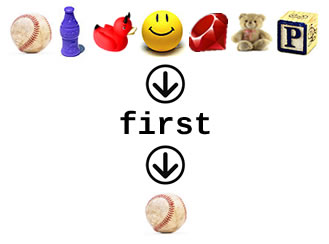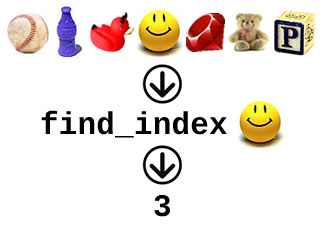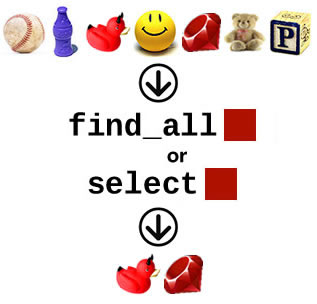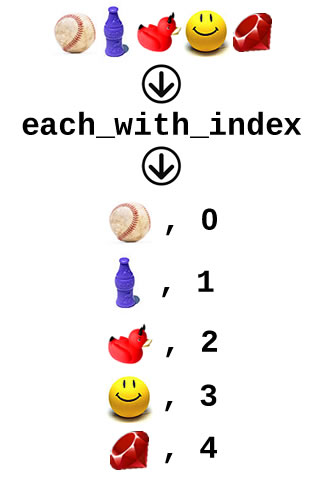
Welcome to another installment of Enumerating Enumerable, my series of articles in I attempt to do a better job of documenting Ruby’s Enumerable module than Ruby-Doc.org. In this installment, I cover the first method.
In case you missed any of the previous articles, they’re listed and linked below:
- all?
- any?
- collect / map
- count
- cycle
- detect / find
- drop
- drop_while
- each_cons
- each_slice
- each_with_index
- entries / to_a
- find_all / select
- find_index
Enumerable#first Quick Summary

| In the simplest possible terms | What are the first n items in the collection? |
|---|---|
| Ruby version | 1.8 and 1.9 |
| Expects | An optional integer n that specifies the first n items of the collection to return. If this integer is not given, n is 1 by default. |
| Returns | If first is applied to a collection containing m elements:
|
| RubyDoc.org’s entry | Enumerable#first |
Enumerable#first and Arrays
When used on an array without an argument, first returns the first item in the array:
posts = ["First post!", "Second post!", "Third post!"] => ["First post!", "Second post!", "Third post!"] # What's the first item in posts? posts.first => "First post!" # Here's the equivalent using array notation: posts[0] => "First post!"
When used on an array with an integer argument n, first returns an array containing the first n items in the original array:
# What are the first 2 items in posts? posts.first 2 => ["First post!", "Second post!"] # Note that when you provide an argument of 1, # the result is still an array -- with just one element. # If you want a scalar, don't use an argument. posts.first 1 => ["First post!"] # Here's the equivalent using array slice notation: posts[0..1] => ["First post!", "Second post!"] posts[0...2] => ["First post!", "Second post!"]
When used on an empty array, first returns:
nilif no argument n is provided- The empty array,
[], if an argument n is provided
[].first => nil [].first 2 => []
Enumerable#first and Hashes
In Ruby 1.8 and previous versions, hash order is seemingly arbitrary. Starting with Ruby 1.9, hashes retain the order in which they were defined, which makes the first method a little more applicable.
When used on a hash without an argument, first returns the first item in the hash as a two-element array, with the key as the first element and the corresponding value as the second element.
# Let's see what stages of partying our friends are in
party_stages = {"Alice" => :party_mineral,
"Bob" => :party_animal,
"Carol" => :party_reptile,
"Dave" => :party_vegetable}
=> {"Alice"=>:party_mineral, "Bob"=>:party_animal, "Carol"=>:party_reptile, "Dave"=>:party_vegetable}
# Who's the first partier and what state is s/he in?
party_stages.first
=> ["Alice", :party_mineral]
When used on a hash with an integer argument n, first returns an array containing the first n items in the hash, with each item represented as a two-element array:
party_stages.first 2 => [["Alice", :party_mineral], ["Bob", :party_animal]] # Note that when you provide an argument of 1, # the result is still an array -- with just one element. # If you want a scalar, don't use an argument. party_stages.first 1 => [["Alice", :party_mineral]]
When used on an empty hash, first returns:
nilif no argument n is provided- The empty array,
[], if an argument n is provided
{}.first
=> nil
{}.first 2
=> []





